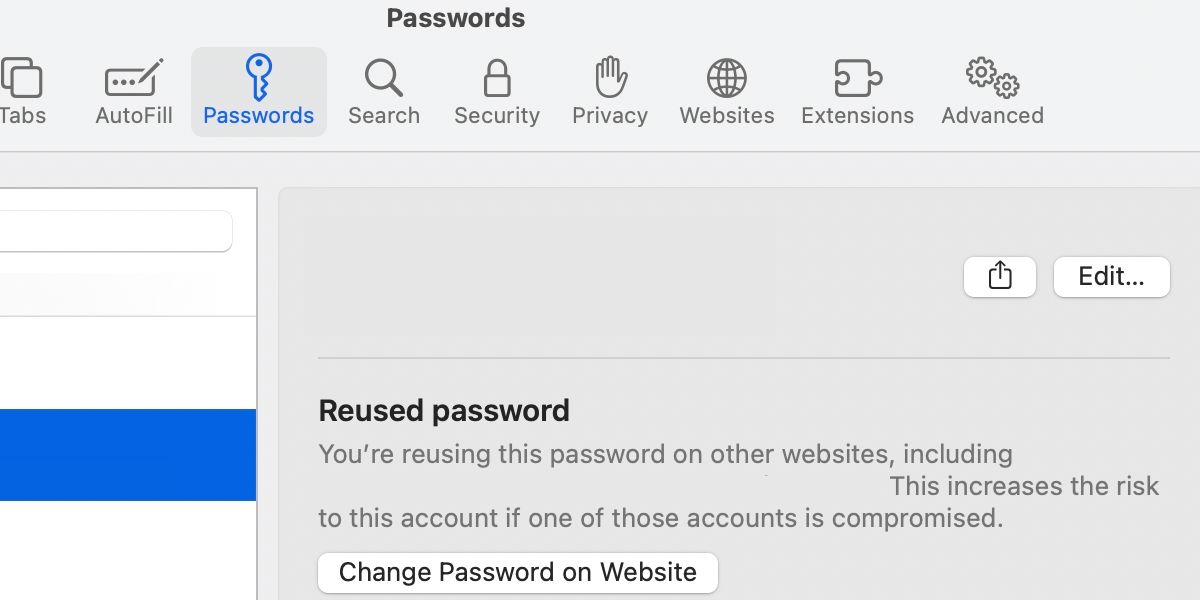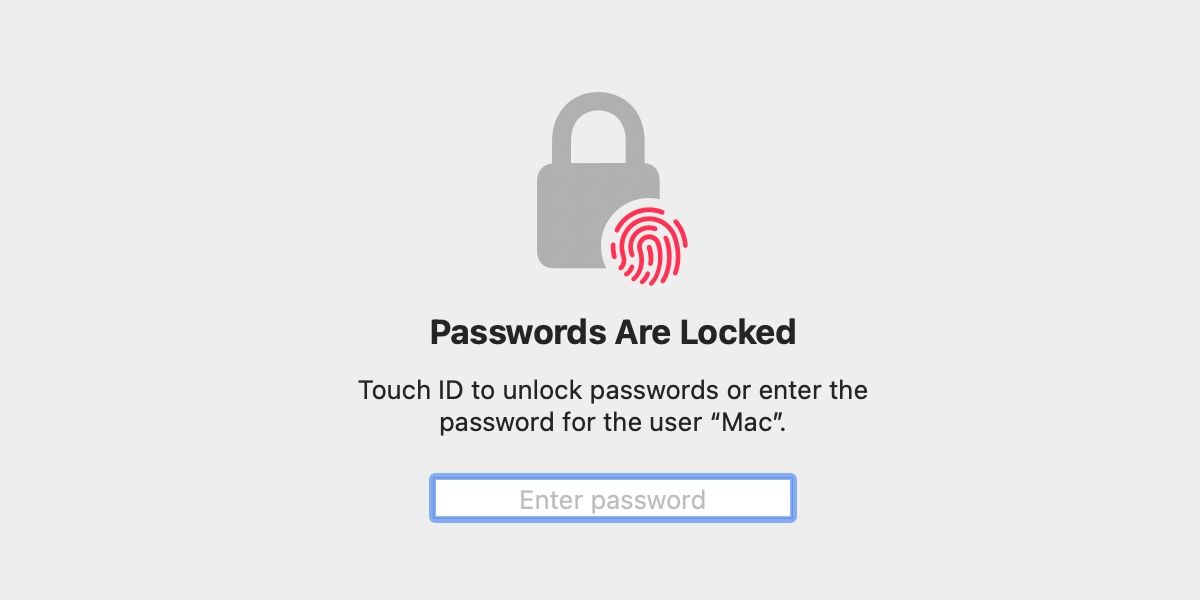[ad_1]
Apple is always improving security in macOS, and, as a portal to cyberspace, Safari is often at the forefront of those improvements. Several of the browser’s built-in tools undoubtedly make using the internet safer.
If you’ve launched Safari and seen a “Compromised Password” alert, you’ve likely encountered a very handy security feature. Ideally, you should investigate all warnings that appear on your Mac, but you should also be wary of potential scams. Let’s discuss Safari password alerts in more detail and explain how to fix the issue.
Safari Password Alerts Explained
While a “Compromised Password” notification might look like a phishing attempt, the warning could also be real. If they discover a data leak containing one of your passwords stored in Safari, Apple does notify you with an alert.
Fraudsters could, however, attempt to use a fake pop-up to steer you towards an illegitimate website. If you see a “Compromised Password” warning, you should investigate the issue in your Safari settings. Do not click any suspicious links.
Other less-concerning alerts may also appear among your Safari saved passwords. Possible warnings include “Reused Password” and “Easily guessed password”.
“Reused” means you’ve used the same password multiple times, which increases the risk of someone gaining access to those accounts. If a website leaks your data, hackers may gain access to your accounts on other sites with the same password, as well as the original site.

“Easily guessed” means you’ve used a password that Apple considers too common. Many websites now have strict password requirements and won’t accept weak login credentials. Short and simple passwords, or those that use familiar patterns, may provoke a warning in Safari.
If you receive any of the alerts mentioned, you should take steps to fix the issue.
Fix Safari Compromised Password Alert in macOS
When attempting to resolve a “Compromised Password” alert in Safari, you should first check to see if the warning is real. Here’s how:
- Go to Safari > Preferences > Passwords.
- Enter your Mac login password or use Touch ID when prompted.
- Locate and select the appropriate entry under Security Recommendations.
- Examine the details of the alert to determine if the threat is real.

If no warning exists within the Safari preferences, you may have encountered a phishing attempt. If, however, the same alert does appear, you should change the password for that account immediately.
Below the warning, a Change Password on Website button should be present. Clicking it will take you to the relevant page where you should be able to reset the password for the affected account.
While you’re in the Safari password preferences, you should also check for minor warnings against other saved credentials. Other alerts may not be as urgent as a confirmed data leak, but you should always strengthen security whenever you get the chance.
Once you’ve reset any weak or compromised passwords, logging in and saving the updated entry in Safari should clear the alert.
If you really want to prevent Apple from warning you about future data leaks, you can do so. Simply untick Detect compromised passwords in Safari > Preferences > Passwords. However, we don’t recommend disabling any security features without good reason.
Safari Security Is Getting Tighter
Hackers, scammers, and fraudsters are constantly trying to outsmart us and gain access to our private data. Fortunately, major developers put a lot of effort into increasing security with each new software release.
Safari’s security features are multiplying and becoming more robust, which is good news for us. Notifications about compromised passwords are welcome. Any tool that helps protect us and our private information is worth embracing.
Sometimes small changes can have a huge impact, and knowing when a site has leaked your password is certainly useful.
Read Next
About The Author
Click Here For The Original Source.
————————————————————————————-

